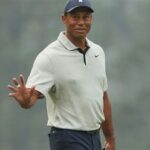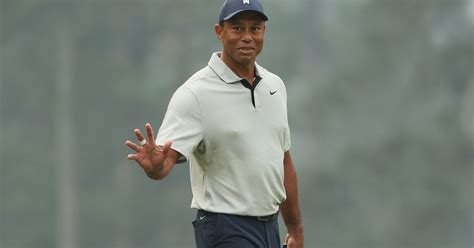
Larry Bird, the Boston Celtics legend, scoffed at the modern NBA’s emphasis on repetitive shooting drills, stating, “Myself, one thousand shots anywhere? I didn’t need practice!” in a recent interview, contrasting his natural feel for the game with today’s data-driven approach to skill development.
Larry Bird Dismisses Modern Shooting Practice Regimens, Emphasizes Natural Talent
Larry Bird, a Hall of Famer and arguably one of the greatest basketball players of all time, recently challenged the prevailing wisdom of modern NBA training, particularly the emphasis on repetitive shooting drills and data analysis. In an interview, Bird expressed skepticism about the need for extensive practice, stating, “Myself, one thousand shots anywhere? I didn’t need practice!” His remarks highlight a stark contrast between his era’s reliance on instinct and feel for the game and the contemporary focus on analytics and structured training regimens.
Bird’s comments, while characteristically confident, offer a glimpse into a different basketball philosophy. During his illustrious career with the Boston Celtics in the 1980s, Bird dominated the league with his exceptional all-around game, characterized by his exceptional shooting, passing, rebounding, and basketball IQ. He won three NBA championships, three MVP awards, and two Finals MVP awards, solidifying his place as a basketball icon.
His playing style was often described as intuitive and improvisational. He seemed to possess an innate understanding of the game, allowing him to make split-second decisions and execute difficult shots with remarkable accuracy. This natural ability, according to Bird, obviated the need for excessive practice.
Bird elaborated, suggesting that his approach to the game was rooted in a deep understanding of basketball fundamentals and a natural feel for the court. He trusted his instincts and relied on his ability to read the game and react accordingly. This contrasts sharply with the current emphasis on data-driven decision-making, where players and coaches analyze shooting percentages from various spots on the court, track player movements, and utilize advanced statistical models to optimize performance.
The modern NBA has witnessed an explosion of data analytics, with teams investing heavily in technology and personnel to gain a competitive edge. Shooting coaches now use sophisticated tools to analyze players’ shot mechanics, identify areas for improvement, and design individualized training programs. Players are often encouraged to take thousands of shots per week, focusing on specific locations on the court and aiming to replicate game-like situations in practice.
While Bird acknowledges the value of hard work and dedication, he seems to believe that an over-reliance on practice can stifle creativity and intuition. He implied that some players today might be sacrificing their natural feel for the game in pursuit of statistical perfection. “You gotta have a feel for the game,” he might have added, although the available excerpt focuses on dismissing the 1000 shots practice.
The debate between natural talent and structured training is not new in basketball. Some argue that innate ability is the most crucial factor in success, while others believe that hard work and deliberate practice can compensate for a lack of natural talent. Bird’s comments add fuel to this debate, offering a perspective from one of the game’s most gifted players.
His remarks also underscore the evolving nature of basketball. The game has become increasingly athletic and specialized, with players focusing on specific skills and roles. The emphasis on data analytics has also transformed the way the game is played and coached.
Whether Bird’s philosophy is still relevant in the modern NBA is a matter of debate. Some argue that his success was a product of his unique talent and that most players need to rely on structured training to reach their full potential. Others maintain that his emphasis on instinct and feel for the game is still valuable and that players should not become overly reliant on data and analytics.
Regardless of one’s perspective, Bird’s comments provide a valuable insight into the mind of a basketball legend. They also highlight the ongoing debate about the best way to develop talent and achieve success in the modern NBA. His words serve as a reminder that while hard work and dedication are essential, instinct, creativity, and a deep understanding of the game are also crucial ingredients for success.
The anecdote also sparks a broader conversation about the nature of talent and how it’s nurtured. Is innate ability more important than rigorous practice? Or can structured training overcome inherent limitations? Bird’s career suggests a strong leaning towards the former, but the reality likely lies somewhere in between. While raw talent provides a foundation, diligent practice hones and refines it, transforming potential into tangible achievement.
The Celtics legend’s remarks also subtly critique the pressure placed on young players to conform to rigid training regimes. In an era where specialization begins at an early age, Bird champions the importance of allowing players to develop organically, fostering a love for the game and encouraging creative expression. This approach, he implies, may be more conducive to long-term growth and enjoyment than the relentless pursuit of statistical milestones.
Furthermore, Bird’s statement can be interpreted as a commentary on the changing culture of sports. In a world dominated by metrics and performance indicators, he reminds us of the intangible qualities that make athletes great – qualities like passion, grit, and an unwavering belief in oneself. These attributes, he suggests, cannot be quantified or programmed but are essential for achieving greatness.
It is imperative to note that Bird’s comments should be interpreted within the context of his own exceptional abilities and experiences. What worked for him may not necessarily work for everyone. Most aspiring basketball players benefit greatly from structured practice and expert coaching. However, Bird’s words serve as a valuable reminder that there is more than one path to success and that individual players should strive to find the approach that best suits their strengths and weaknesses.
Ultimately, Larry Bird’s dismissal of excessive practice is a testament to his unique talent and his unwavering belief in his own abilities. His words offer a refreshing perspective in a world increasingly dominated by data and analytics, reminding us of the importance of instinct, creativity, and a deep love for the game. While his approach may not be universally applicable, it serves as a valuable reminder that there is more than one way to achieve success in basketball and in life.
Bird’s confidence, whether perceived as arrogance or self-assurance, was a hallmark of his playing career. It fueled his legendary performances and intimidated opponents. His latest statement echoes this confidence, suggesting that he possessed a natural ability that transcended the need for conventional training methods. Whether one agrees with his assessment or not, it is undeniable that Larry Bird’s impact on the game of basketball is immeasurable, and his opinions continue to resonate with fans and players alike.
The current trend in the NBA leans heavily toward scientific and analytical methods in training and player development. Teams employ dedicated staff to monitor players’ biometric data, analyze their movements on the court, and design individualized training programs based on these findings. This approach is believed to maximize player efficiency, reduce the risk of injury, and ultimately improve team performance. However, Bird’s remarks suggest a potential downside to this approach: a potential stifling of creativity and a loss of the intuitive feel for the game that he considers essential.
The debate between data-driven training and intuitive play is likely to continue for years to come. There is no single right answer, as the optimal approach may vary depending on individual players’ strengths, weaknesses, and learning styles. However, Bird’s perspective provides a valuable counterpoint to the prevailing emphasis on analytics, reminding us of the importance of nurturing players’ natural abilities and fostering a love for the game.
Looking back at Bird’s career, it’s evident that his success was not solely attributable to natural talent. He also possessed an exceptional work ethic and a relentless desire to improve. While he may not have subscribed to the modern notion of taking thousands of shots in practice, he undoubtedly spent countless hours honing his skills and perfecting his craft. His comments should not be interpreted as a dismissal of hard work but rather as an affirmation of the importance of trusting one’s instincts and developing a deep understanding of the game.
The story also highlights the generational differences in basketball training. In Bird’s era, coaching methods were often less structured and more focused on fundamental skills and game situations. Players were encouraged to develop their own individual styles and to rely on their instincts on the court. Today, coaching has become more specialized and data-driven, with a greater emphasis on maximizing efficiency and minimizing errors.
While both approaches have their merits, it’s important to recognize that the game of basketball is constantly evolving. What worked in the past may not necessarily work in the present, and vice versa. The key is to find a balance between structured training and intuitive play, allowing players to develop their skills while also fostering their creativity and love for the game.
In conclusion, Larry Bird’s recent remarks about practice offer a fascinating glimpse into his basketball philosophy and a valuable counterpoint to the modern emphasis on data-driven training. While his approach may not be universally applicable, it serves as a reminder of the importance of instinct, creativity, and a deep understanding of the game. His words are sure to spark further debate about the best way to develop talent and achieve success in the ever-evolving world of basketball.
Bird’s statement also allows for contemplation about the role of intrinsic motivation in athletic achievement. While structured practice and external coaching can undoubtedly improve skills, the internal drive to excel often makes the difference between good and great players. Bird’s confidence and self-belief, evident in his dismissive attitude toward practice, suggest a high level of intrinsic motivation. He was driven by a love of the game and a desire to be the best, which propelled him to legendary status. This internal drive may have been more influential than any specific training regimen.
Furthermore, Bird’s perspective prompts a reflection on the limitations of data in capturing the full complexity of athletic performance. While statistics can provide valuable insights into efficiency and effectiveness, they often fail to account for intangible qualities such as leadership, composure, and the ability to perform under pressure. Bird’s success was not solely based on quantifiable metrics; it also stemmed from his exceptional basketball IQ, his ability to read the game, and his unwavering confidence in clutch moments. These qualities, which are difficult to measure, were arguably just as important as his shooting percentage or rebounding numbers.
The discussion also brings up the idea of deliberate play versus deliberate practice. While deliberate practice involves structured, repetitive drills designed to improve specific skills, deliberate play emphasizes unstructured, game-like situations that allow players to experiment and develop their creativity. Bird’s approach seems to align more closely with deliberate play, as he emphasized the importance of developing a feel for the game and trusting one’s instincts. This approach may be particularly beneficial for developing creativity and adaptability, which are essential for success in a dynamic sport like basketball.
Moreover, Bird’s comments serve as a reminder that there is no one-size-fits-all approach to athletic development. What works for one player may not work for another. Some players thrive in structured training environments, while others benefit more from a more unstructured approach. The key is to find the training method that best suits an individual’s learning style, personality, and athletic strengths. Bird’s success suggests that it’s important to listen to one’s own body and mind and to trust one’s own instincts when it comes to training.
In addition, Bird’s anecdote challenges the idea that athletic success is solely determined by hard work and dedication. While these qualities are undoubtedly important, natural talent and innate ability also play a significant role. Bird possessed a unique combination of physical skills, mental acuity, and basketball IQ that set him apart from his peers. While he undoubtedly worked hard to hone his skills, his natural talent was a key ingredient in his success. This highlights the complex interplay between nature and nurture in athletic achievement.
Finally, Bird’s statement underscores the importance of maintaining a sense of perspective in the pursuit of athletic excellence. While it’s important to strive for improvement and to push oneself to the limits, it’s also important to remember that sports are ultimately about enjoyment and camaraderie. Bird’s love of the game was evident throughout his career, and his passion for basketball was a key factor in his success. By maintaining a sense of perspective and focusing on the joy of playing, athletes can maximize their potential and achieve long-term fulfillment.
In a world saturated with data and analytics, Bird’s sentiment offers a refreshing perspective, reminding us of the intrinsic joy and artistry that should be at the heart of the game. It’s a call to remember that while technique and strategy are important, the love of the game and the freedom to express oneself on the court are what truly make basketball a beautiful and captivating sport. His career provides an example of how combining exceptional innate talent with hard work and intuitive play can lead to legendary status, challenging the contemporary over-reliance on data and structured practice, offering a different angle on athletic development, and reminding players and coaches to respect and cultivate the natural abilities and love for the game above all else. It’s a reminder that success isn’t solely about quantifiable metrics, but also the intangible elements that make the sport compelling. Frequently Asked Questions (FAQ)
-
What was Larry Bird’s main point in his recent statement about practice?
Larry Bird’s main point was to express skepticism about the modern NBA’s emphasis on repetitive shooting drills and data-driven training. He suggested that his natural talent and feel for the game obviated the need for extensive practice, contrasting his era’s approach with today’s focus on analytics. As he mentioned: “Myself, one thousand shots anywhere? I didn’t need practice!”
-
How does Larry Bird’s approach to basketball training differ from the modern NBA approach?
Bird’s approach emphasized instinct, creativity, and a deep understanding of the game. He relied on his natural talent and feel for the court, making split-second decisions and executing difficult shots with remarkable accuracy. The modern NBA approach, on the other hand, is heavily data-driven, with teams using sophisticated tools to analyze player movements, track shooting percentages, and design individualized training programs based on these findings.
-
Did Larry Bird actually not practice at all, or is he exaggerating for effect?
While Bird’s statement might be an exaggeration, it highlights his belief that excessive practice can stifle creativity and intuition. He likely did practice, but his emphasis was on developing a feel for the game and trusting his instincts rather than adhering to rigid training regimens. It is more likely that he spent less time in structured practice than modern players.
-
What is the potential downside of the modern NBA’s emphasis on data analytics, according to Larry Bird’s perspective?
According to Bird’s perspective, the potential downside of the modern NBA’s emphasis on data analytics is that it can lead to a stifling of creativity and a loss of the intuitive feel for the game. He suggested that some players might be sacrificing their natural abilities in pursuit of statistical perfection. It’s possible players are over-relying on data and forgetting to develop their innate skills and love for the game.
-
Is Larry Bird suggesting that hard work and dedication are not important in basketball?
No, Bird is not suggesting that hard work and dedication are not important. While the excerpt available focuses on his dismissal of repetitive practices, his career shows that he did have a very high work ethic. Instead, he is emphasizing the importance of balancing hard work with instinct, creativity, and a deep understanding of the game. He believes that players should not become overly reliant on data and analytics, as it can stifle their natural abilities and enjoyment of the sport.









